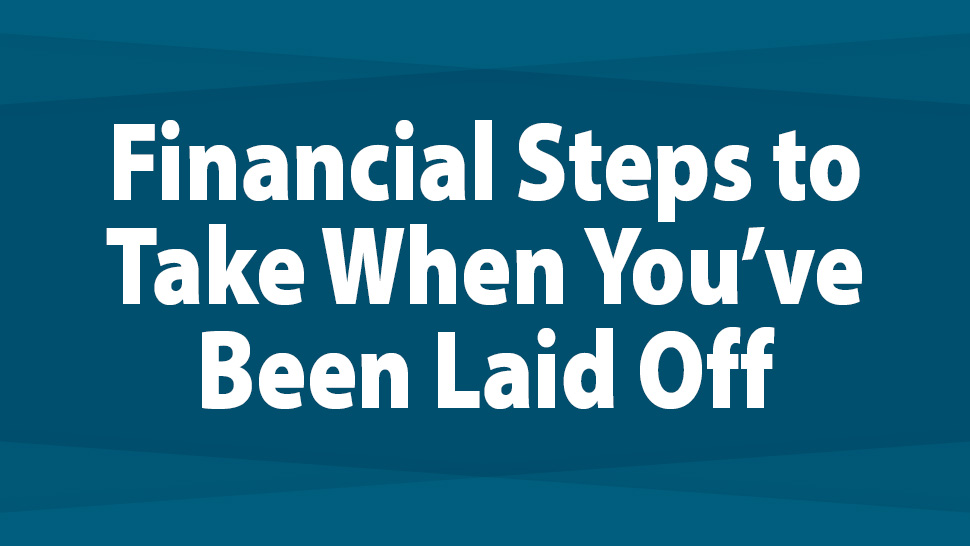Being laid off from work is extremely stressful. While some employers provide advance notice, this isn’t always the case.
If you haven’t created a plan or you don’t have an emergency fund to fall back on, figuring out how to pay the bills can become worrisome.
We’ve compiled a list of financial steps to take in the event of such a drastic change in income.
Review Your Employer’s Benefits
Make sure to review your benefits package for any incentive that may allow you to collect money after a layoff.
It’s possible that your employer’s benefits package offers cash-ins on accrued vacation and sick time. Typically, these packages also include unemployment insurance, providing temporary financial assistance to employees. These benefits could provide much-needed money to cover expenses over the next few months.
If a layoff happens, ask your HR department to determine what’s available to you. Understanding your benefits will help paint a clear picture of your income, making it easier to create a spending plan.
Assess Your Assets
It’s important to prepare for the unknown before it happens!
Building an emergency fund is key to proper preparation. Work toward building a fund that can sustain a minimum of 3 months of living expenses. Although we recommend 3-6 months of living expenses, any amount saved is helpful.
If your company lays you off, review your savings account balance for an accurate amount of what you have saved. In addition to your savings, calculate your final pay and cashed-in vacation or sick time.
Use your emergency savings and these other funds to cover the necessary expenses in your spending plan.
Create a Spending Plan
Start creating a spending plan by taking inventory of your monthly expenses.
Gather a copy of your most recent bank statement and three highlighters in different colors. Then, color code each transaction on your bank statement into the following categories:
- Necessary living expenses
- Monthly bills
- Unnecessary living expenses
You may find it challenging to decide which expenses are necessary and which to cut, but it’s important that you do.
Necessary living expenses are those that provide housing, food, and utilities. Monthly bills are those like car payments, hygiene items, and medical expenses. Anything outside of these expenses you can temporarily do without. Put things like streaming services, eating out, new clothing, and vacations on hold until your income increases.
Avoid New Obligations
Don’t obtain any new loans or increase credit card balances.
Increasing debt obligations while on a reduced income can cause further stress. Remember, your new spending plan is structured around what you are currently obligated to.
Let creditors know if your financial situation changes and you can’t make payments. Keep yourself up to date on hardship options offered by your creditors and their qualifications.
It’s possible that creditors may temporarily reduce the interest rate on a credit card or defer a payment on your loan. A deferred payment can free up a few hundred dollars to cover your necessary living expenses.
Remember to ask about how these options may impact the terms of your loan agreement.
If you need assistance developing a spending plan or if you have questions about budgeting, credit, or debit, Pelican’s team of Nationally Certified Credit Counselors is here to help! You can schedule free one-on-one financial wellness checkups and counseling by visiting pelicanstatecu.com/wellness.
Being laid off can be extremely stressful but having a plan and an emergency fund in place can help soften the blow. Remember, not having a job is temporary, and you will recover!
Do you have any questions about how to stay financially stable while being laid off? Let us know in the comments!
Once a Pelican State CU member, always a member—through life’s milestones, we’ll always be there to help you with your financial needs. Your Financial Family for Life. Give us a call at 800-351-4877.



